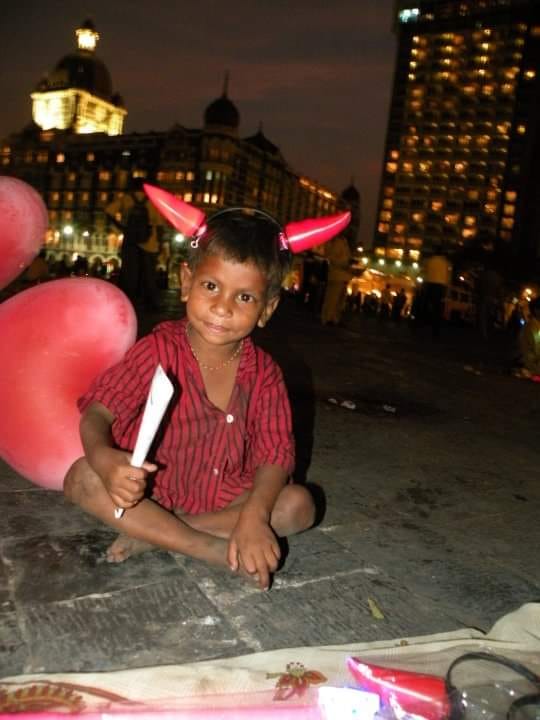Remembering Tennyson`s words,
“Vex not thou the poet`s mind
With thy shallow wit
Vex not thou the poet`s mind
For thou canst not fathom it”
Perhaps in an earthly life full of chaos, like the lungs that need fresh air,
the mind longs for true happiness. The poems of Subhankar Das
in ‘Thieves of the Wind’ is a bold attempt to claim one`s sky where
mind burdened with loveless materialistic modern life harkens to
recollections, the golden reminiscences of the past days. The
metaphysical void by their absence stifles, suffocates, provokes to steal
moments to live all over again, to breathe to celebrate life.
Hopelessness of unrequited love pervades in most of the poems and
yet we find a mature mind deeply reflective by a dimension of human
experience. In his poems Subhankar Das gives us a slice of his inner
self while presenting the human dilemmas, pain and most strikingly a
glimpse of a ‘feeling’ heart of the poet that beats furiously for love and
the delicate sentiments. The lines : “I am just a coward/trying to hang
on” articulate the pangs of lost love like death. The poet celebrates the
guts ‘to love’ in the poem ‘Backbone’ in the lines : “At least let them
enjoy life/which is making me impotent” and “I even gave them free
condoms”. When the integral part of soul`s bliss is disturbed by
materialism and loveless modern times, what results is the disruption
of harmony and the eternal restlessness, the desperate attempts to live
knowing well the butt ends of romantic evenings, as in the
poem ‘Smoking’ : “you always smell of tobacco/but I am used to it”.
The bitterness continues in the loveless love-making in ‘And it doesn`t
always taste like chocolate’ : “May be there were a few house lizards/
which ran paused and ran again/up in the ceiling and a limp cock/which
I forgot to notice”. The exhausted mind rebels in ‘Up for sale’, a satirical
banter not at all on decadence but a loveless mechanical life, “God why
I am not a woman/then there won`t be this headache/to make it extra
long, extra strong/and I am even having trouble/in getting it up these
days”. The longing is omnipresent in ‘The Wait’ and ‘The Missing
Moon’ : “Only the naked lamps glared all around”. The reminiscences
of the past days are all transient : “But someone is erasing everything
with a rubber”. Even memories are scathed by time and the sulking
desiccated materialism.
The ‘Honey’ is a fine escapade into the trifle of the mind, relishing in
the dilemma whether to indulge into the captivation or to celebrate the
emancipated soul, the freedom of the spirit like the butterfly : “ Should
I just eat it up or kill it and stick it up on my fridge..”. It peeks into the
extended vision of the poet that comprehends the freedom of the soul
against the terrestrial desires.
The poems in the hand of a mature artist embodies the spirit of modern
times, marked by the bold and passionate expressions.
The poems of Catfish McDaris are replete with bootlegged pleasure
and with the punches of fantasy one wouldn`t mind to revel in reveries.
The language crisp with not any overdose of humor tickles your funny
bone. Again with eloquence of a story teller he relentlessly derides
the peccadilloes, the derelict culture that distorts the normal social
milieu. We find his stories subtle with didactic undertone like the
bewildered father Mongo in ‘Comanche Java’. Junita, his daughter,
emerges from dating losers to procuring a degree and a decent job.
His stories forsake pedantry and with deftness of prudent artist, he
peeks into the psyche of the characters. With their precarious traits and
eccentricities, they break forth the stereotypes as, “Rick hated black
people”. He would “fart up the living room and laugh and then stink
up the bathroom and not flush the toilet”. Joe had “a terrible gambling
problem” – a deleterious habit that ruins his prospects. Bill claimed to
be a vegetarian and crammed down mouthfuls of pork chops, chicken
or steak and “chewed with his mouth open”.
‘Lipstick on a Pig’ is another brilliant write up that addresses the alcohol
and drug problems: “There is no cure for alcoholism, my drug of choice,
along with plenty of other seriously bad habits but with training and
perseverance, you can relearn how to be human a day at a time”. The
aftermath of drug abuse is expressed in lines “I don`t know if the acid,
weed, cocaine, heroin, glue, cough syrup, peyote, and mushrooms
robbed me of my brain cells…How I walk a razor blade and ask God`s,
family and your forgiveness”. We find his perspicacious derision against
the social evils in the poem ‘Phalanxes of Tombstones’ : “There`s no
such/Thing as revolution, it`s just another word/meaning leap frog of
the rich, so they can/buy a bit of power with the blood of the poor.
By Paromita Bhattacharjee

.jpeg)




